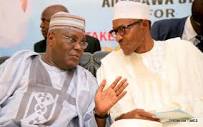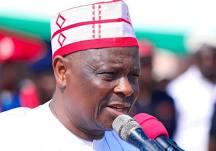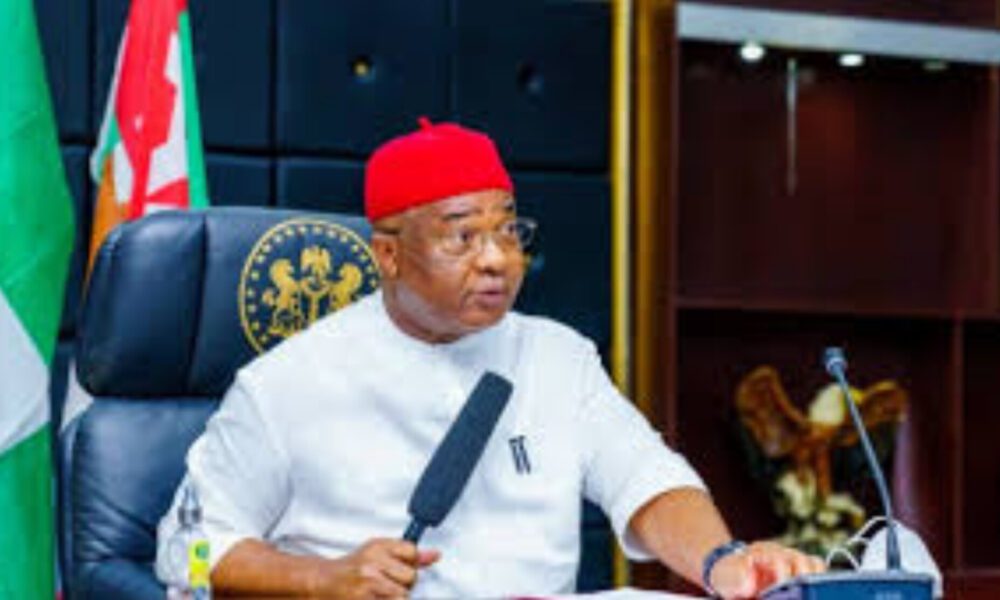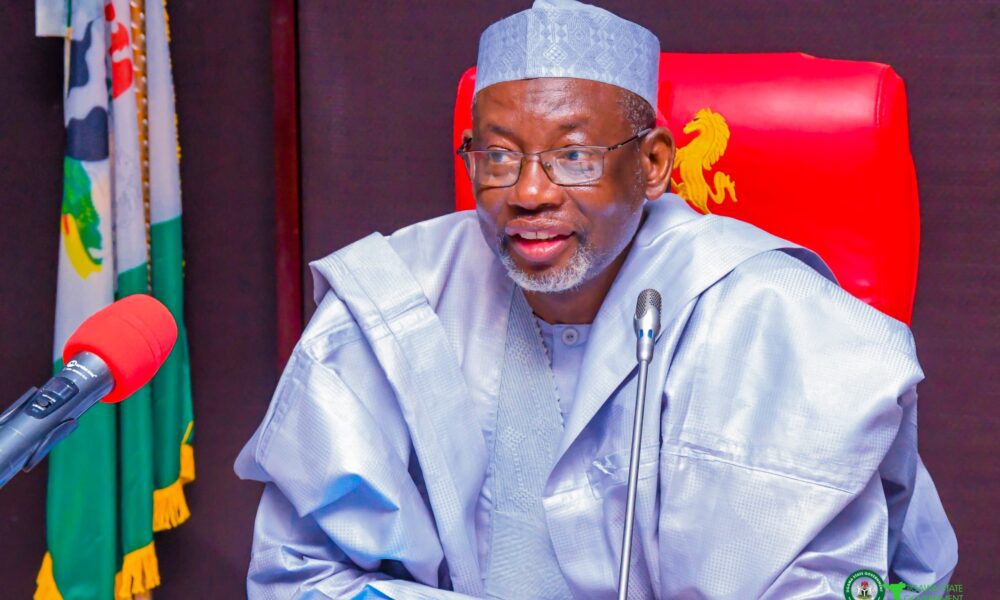By Tunde Olusunle
For my masters degree thesis 36 years ago, I was assigned to Prayag Tripathi, a bespectacled, painstaking and thorough Indian professor of English as my supervisor. His job contract unfortunately expired just before I submitted the last and concluding chapter of the work. Tripathi personally discussed with and reassigned me to Olu Obafemi, Emeritus professor and 2018 recipient of the Nigerian National Order of Merit, (NNOM), Tripathi’s respected colleague. Obafemi was to takeover therefrom, all the way to my defence of the dissertation. I was deploying radical, Marxist discourse and theories in the interrogation of my thesis and the younger Obafemi was an acclaimed leftist scholar, as evidenced by the voluptuous oeuvre of his creative and intellectual endeavours.
The NNOM which Obafemi earned five years ago, is widely regarded as the Nigerian equivalent of the Nobel Prize. It is awarded for outstanding creativity and excellence, in research and scholarship. I am myself a certified Olu Obafemi protege, by the way, having been his student and mentee for over four decades. Scholarship was a lot more serious business those days, beyond the chua, chua, chua, we have today. This is the way Seriake Dickson, former Bayelsa State Governor would describe the reverse intellection we have in place today. Academics was not “outsourced,” “cut and paste” or rub a dub as is prevalent today.

Asides defending the work plan of my proposed research before the departmental board of stern-looking, grey-haired, moustachioed professors and scholars, my supervisor had to vet and approve the drafts of each and every chapter of my long essay. We wrote in long hand in that milieu, so you were compelled to write as legibly as possible. Tripathi reverted the introductory chapter of my dissertation days after I handed it in, and made suggestions to enable me improve on a second draft. There was this comment he made which particularly struck me and stuck in my mind, or head, ever since. On the margins of this specific page, he drew a box around a part of the script and scribbled: “This is logorrhoea.”
The advent of the internet and handheld devices which have largely simplified life for humanity in many ways, was still light years ahead. To the school library therefore I proceeded to check for the meaning of the word. Logorrhoea according to the dictionary, is a tendency to extreme loquacity, loquaciousness or garrulousness. I should quickly add a sentence or two about my erstwhile literature teacher, Tripathi, by the way. It is a measure of the conscientious selflessness of his breed of intellectuals, that Tripathi would go to the university library without any prompting, identify books relevant to my work and loan them on my behalf, in his name. He will subsequently track me to the postgraduate hall, (PG Hall), and hand them over to me! He will typically apologise for barging into my privacy and admonish I return the books to the university book hub when I’m done. Yemi Akinwumi, eminent professor, Vice Chancellor of the Federal University Lokoja, (FUL), my classmate, co-resident in the postgraduate hall and brother, is a phone call away. There was a system, there was a country.
Nigeria’s outgoing president, Muhammadu Buhari, has recently resorted to the manner of triumphalism which is totally unbeffiting of an octogenarian, and his office. Last week, he was recorded as putting down the nation’s political opposition, while celebrating the “victory” of his party, the All Progressives Congress, (APC), during the last polls. A statement by Garba Shehu, Buhari’s spokesperson, my good friend and colleague, put the loss of the 2023 elections down to “overconfidence, complacency and bad tactical moves,” on the part of the opposition. As far as Buhari is concerned, the APC was better organised, more strategic and more desiring of victory. He forgot to add that the election was “snatched, grabbed and run away with,” as publicly simulated on the sidelines of the appearance of his party’s candidate in “Chatham House,” last December.
It would appear that so long as the outcome suits him, Buhari is totally disinterested in postmortems to interrogate the electoral process and put necessary measures in place to drive improvements in future polls. Umaru Musa Yar’Adua even in victory over the same challenger, Buhari in the 2007 presidential election, admitted that the process which produced him as president was flawed. He admonished that the gamut of the electoral process be reviewed, for enhanced credibility as a way of deepening democracy. Yar’Adua unfortunately took ill in the third year of his regime and passed in May 2010. For Buhari, once he won the presidential election in 2015, and was returned in presumably cooked up and crooked circumstances in 2019, in a process which impugned the believability of the contest, it was all well and good.
Buhari will not be bothered if the conduct of the 2023 general elections took Nigeria back practically to the “stone age.” In a society committed to conformation with rule of law, Buhari should indeed have been reprimanded for misconduct during the last election. He publicly advertised his ballot paper against extant regulations. Videos and photographs of this display, instantaneously trended on the internet. As a public figure of his stature, Buhari’s action was capable of influencing some voters to defer to the preference of their president. One of the allegations against Moshood Abiola during the 1993 presidential election, advanced to justify annulment of that process, was that he wore a dress bearing the logo of his party to his polling unit!
But Buhari who personally approved the mega-billions supposedly deployed to ensure that the votes of every Nigerian counts, would not be concerned if the end result was a total waste of our common-wealth. Most of the funds appropriated for the polls almost certainly, ended up in the pockets and vaults of his proxies in the quantum malfeasance which has emblematised the Buhari regime. The officials keep straight faces in public, to conceal the lacerations they have dealt our resources. Under Buhari, the mechanism calculated to ensure real-time electronic transfer of election results was invented on one hand, and brazenly violated, on the other hand. Such violations were perpetrated to serve predetermined ends. Under Buhari, sensitive election materials are still being physically hauled and herded around to collation centres, during which they are susceptible to “snatching, grabbing and fleecing with.”
Much as the jury is out on the underwhelming performance of Buhari’s presidency these past eight years, the octogenarian never misses any opportunity for vainglorious adulation. At the commissioning of a housing project in Zuba on the periphery of Abuja the other day, Buhari sustained his predilection towards self-celebration. According to him, his “administration has fulfilled its election promise of change to Nigerians.” Really? Maybe. Buhari may be deploying instruments of obtuse appraisal, though to arrive at his conclusions. He famously told us before he came into office in 2015, that he will drag Nigeria from “top to bottom.” He has done just that and we are effectively at that basement now. He will be correct therefore to have so positively rated his aggregate endeavours in office. In his revisionist narrative, Buhari wants us to believe he is the best thing that ever happened to Nigeria.
The Human Rights Writers Association of Nigeria, (HURIWA), spontaneously shot down a recently released 91-page book of platitudes extolling Buhari’s achievements as articulated, by his communications office. The publication is consistent with the tendency towards the propagandist logorrhoea which has typified the night before Buhari fades from the nation’s sociopolitical scene. Famous and respected Kenyan professor of law, who is also a good governance advocate, Patrick Loch Otieno Lumumba, popularly known as “PLO Lumumba” made a pertinent observation in one of his characteristically spellbinding public engagements. He theorised that “if a leader has to spend so much time and energy explaining what and what he has done while in office, then that leader has done absolutely nothing.” For Lumumba, “a leader’s achievements should speak for him.” Buhari’s trenchant loquaciousness on the eve of his departure from the presidency therefore is tailored to paper up his serial failings, foibles and fumblings.
Flagbearer of the Peoples’ Democratic Party, (PDP) at the last presidential election, former Vice President Atiku Abubakar who is understandably hurt by the obvious and deliberate figure-tweaking and gross violations which characterised the last polls, has maintained enviable stoicism. His interventions in public discourse are few and measured, even as he pursues a legal cause to unravel the jigsaw. Atiku is doing this not particularly because of himself, but on behalf of every prospective participant in the democratic process. Atiku’s triumphs in his litigations against the president and the state following his persecution by President Olusegun Obasanjo, have profited several modern day political aspirants and candidates. Some of the judgments have mitigated rascality, impunity and lawlessness in the exercise of authority within the executive arm of government and various political platforms. To adapt the title of the civil war memoir written by Chukwuemeka Odimegwu Ojukwu, leader of the defunct Biafran cessation attempt, Atiku’s pursuit is not because he’s involved.
Atiku is neither downcast nor depressed by the magical turn of events proceeding after the February 25, 2023 presidential election. He runs his regular routine, ever hosting guests, solving problems within his capacity, honouring engagements and doing paperwork. He recently made the rounds checking up on his close associate, Raymond Aleogho Dokpesi, owner of Raypower Radio and AIT, arguably one of the pioneer privately-owned broadcasting outfit, who was beneath the weather. He proceeded to commiserate with his protege and former Deputy Speaker of the House of Representatives, Emeka Ihedioha, who lost his mother. He also emphatised with Orji Uzor Kalu, Majority Whip of the Senate, whose wife sadly passed in the US. Atiku took the trouble to travel to Kano, to personally visit the family of Musa Gwadabe, Minister of Labour and Productivity under the Obasanjo/Atiku government. Atiku did all of these, in person.
Beyond the symbolism of these efforts, Atiku is demonstrating the manner of humanity and fellow-feeling which has been totally absent from the Buhari regime. Atiku’s rounds as detailed above, were not driven by partisanship or ethnic considerations. Dokpesi, Ihedioha and Kalu are all southerners and Christians. Gwadabe was a northerner and a Muslim. Even as the nation spiralled into wanton killing fields on several fronts, not once did Buhari excuse himself from the cosy royalty of Aso Villa, to personally and practically assess any incident. Rather, for every calamity that befell his constituents, a mechanistic “Letter of Condolence” was stereotypically the maximum expression of concern by the president. Expected to detour into Zamfara on a visit to Sokoto State last year, the alibi of “bad weather” was propounded to excuse Buhari’s presidential jet from possible attack by bandits domiciled in Zamfara.
Atiku, by the way, is a consummate fan of the very popular, high-flying English Premier League Club, Arsenal. This indeed is one of our mutual intersections. As “Gunners,” we persevere, we are focused, we are committed. We have style, we have flair, we are systematic, we are not given to quick-fixes. We are patient enough to experience trends and developments as they evolve. At a time like this, one is reminded of that timeless Yoruba adage which translates as: “The slowness of the cat is skill, not a lack of will.” It’s game on metaphorically, as legal proceedings get underway Monday May 8, 2023. Please get a vantage seat at the lips of the play field.
Tunde Olusunle, PhD, poet, journalist, scholar and author, is a Member of the Nigerian Guild of Editors, (NGE)




